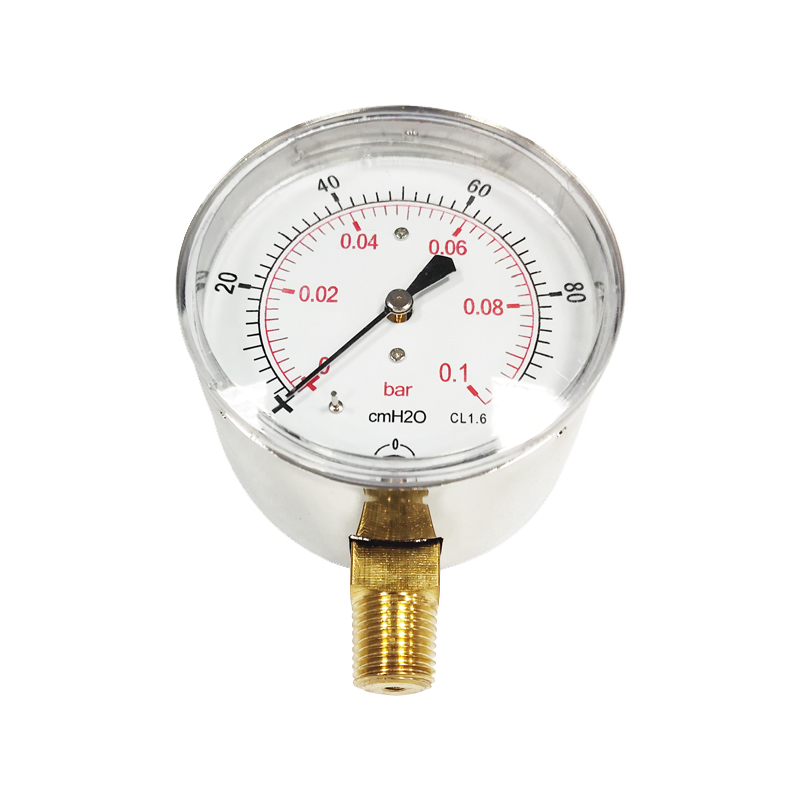
Jul . 28, 2024 16:59 Back to list
Top Bellow Type Differential Pressure Gauges for Accurate and Reliable Measurements in Various Applications
Understanding Best Differential Pressure Gauge Bellow Type
Differential pressure gauges are essential instruments in various industrial applications, allowing operators to measure the difference in pressure between two points in a system. Among the different types of differential pressure gauges available, the bellow type is known for its reliability and precision. This article will explore the features, benefits, and applications of the bellow type differential pressure gauge.
What is a Bellow Type Differential Pressure Gauge?
The bellow type differential pressure gauge uses the principle of mechanical deformation for pressure measurement. It consists of a bellow element, typically made from materials like stainless steel or brass, which expands or contracts in response to pressure changes. When pressure is applied, the bellow compresses or decompresses, causing a linked mechanical system to provide a reading on a calibrated dial.
Key Features of Bellow Type Differential Pressure Gauges
1. Robust Construction Bellow type gauges are constructed with high-quality materials, making them durable and resistant to harsh environmental conditions. This robustness ensures a longer lifespan and consistent performance, making them ideal for industrial applications.
2. High Sensitivity The design of the bellow element allows for high sensitivity to pressure changes. This sensitivity enables the gauge to detect even minor fluctuations in pressure, providing accurate readings crucial for processes that require precise monitoring.
3. Variety of Ranges Bellow type differential pressure gauges are available in a wide range of pressure measurement capabilities. This adaptability makes them suitable for different applications, from HVAC systems to complex chemical processing units.
best differential pressure gauge bellow type

4. Ease of Installation and Use These gauges are designed to be user-friendly, with straightforward installation processes. Users can easily read the gauge due to the clear markings and dials, facilitating quick decision-making in operational settings.
Benefits of Using Bellow Type Differential Pressure Gauges
1. Accuracy With their ability to deliver precise measurements, bellow type gauges are critical for applications where even minor pressure deviations can lead to significant operational issues. Accurate monitoring helps in maintaining optimal process conditions and preventing equipment damage.
2. Cost-Effective Solutions Although initial costs may vary, the long lifespan and reliability of bellow type gauges contribute to lower maintenance costs over time. Their durability ensures that they withstand the rigors of continuous operation, leading to fewer replacements.
3. Versatile Applications Bellow type differential pressure gauges can be used across various industries, including oil and gas, pharmaceuticals, food processing, and HVAC systems. Their versatility makes them a valuable tool in any industrial setup that requires pressure measurement.
4. Safety Features Many bellow type gauges come equipped with safety features that prevent overpressure and damage to the instrument. This reliability is crucial in high-pressure environments, ensuring the safety of both personnel and equipment.
Conclusion
The bellow type differential pressure gauge represents a blend of precision, durability, and versatility, making it an excellent choice for measuring pressure differences in industrial applications. By understanding its features and benefits, users can make informed decisions when selecting pressure measurement solutions for their specific needs. With their proven reliability and performance, bellow type differential pressure gauges will continue to play a vital role in ensuring the efficiency and safety of various processes across multiple industries.
-
High-Precision 5 Valve Manifold Differential Pressure Gauge Suppliers
NewsApr.29,2025
-
High-Precision Diaphragm Vacuum Pressure Gauges Manufacturers & Quotes
NewsApr.29,2025
-
Omega Differential Pressure Gauges High Accuracy & Durability
NewsApr.28,2025
-
Low Pressure Differential Pressure Gauges Precision Solutions & Quotes
NewsApr.28,2025
-
Digital Diaphragm Pressure Gaauge Precision Measurement & OEM Quotes
NewsApr.28,2025
-
Differential Pressure Gauge China Price High-Accuracy & Best Quotes
NewsApr.28,2025
